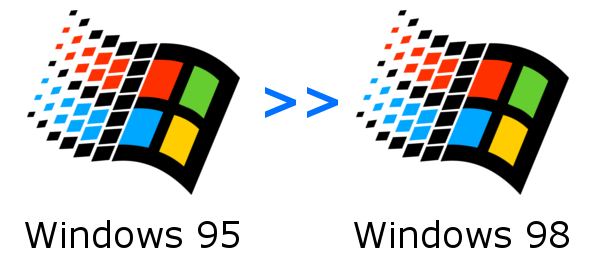The Windows Update Adventure - Starting from MS-DOS and upgrading all the way to Windows 10
- ryan7169
- May 30, 2020
- 2 min read
Updated: Jun 12, 2020
Phase 0: Humble Beginnings

When you boot up your computer today, more than likely you'll be booting into some form of Microsoft Windows. According to Wikipedia, it's estimated that Microsoft Windows is anywhere between 77-87% of the global usage of operating systems (OS) throughout the entire world.
I've thought about doing this project for a few years now. I remember starting with computers at a young age using MS-DOS and having to relearn everything whenever we got a new Windows OS in the house. I wanted to explore my computer roots and experience the nostalgia of upgrading a virtual machine (VM) starting from MS-DOS all the way to Windows 10. I'm not sure what issues may occur along the way, but I'll try my best to share the experience here so you can suffer along with me. :)
Disclaimer:
I will not be bothering with Windows 1 or Windows 2. They are not upgradable. Besides, they're glorified GUI shells of MS-DOS anyway.
This project is to mimic my personal journey through Windows.
I will not be dealing with Windows 3.11 WFW, NT, 2000, or any Windows OS that was meant for an enterprise setting. Microsoft notoriously doesn't allow upgrading between consumer and business products, and I'd prefer my project to actually succeed. :P
Now with that out of the way, let's get started!
Requirements:
Hypervisor
I've decided to use VMware Workstation Pro 15.5 for my project. You could probably perform the same steps with VirtualBox or some other hypervisor of your choosing.
~20-85GB of HDD space
Amount of HDD space depends on if you want to keep each Windows VM as you upgrade through, or use a single VM for the entirety of the project.
An Intel CPU.
This might be a point of contention, but I did try a dry run of this on my AMD laptop prior to documenting these steps. For some reason I would get constant crashes and errors for Explorer.exe and Rundll32.exe during the Windows 98 installation, as well as randomly in Windows 95. After researching the issue extensively, I found evidence that suggests AMD Ryzen CPUs currently have an obscure bug where virtualization in VMware simply doesn't work correctly for Windows 95-ME. This may be remedied by switching to VirtualBox, but VMware is my tool of choice.
Don't forget to enable Virtualization Technology on your CPU within your host computer's BIOS. Without it, VMware won't work. :)
Patience!
A fun project should be fun! Don't get frustrated if things don't work right away.
I will be editing this post in the future to link each phase of the project as I document them. Please stay tuned!






Comments